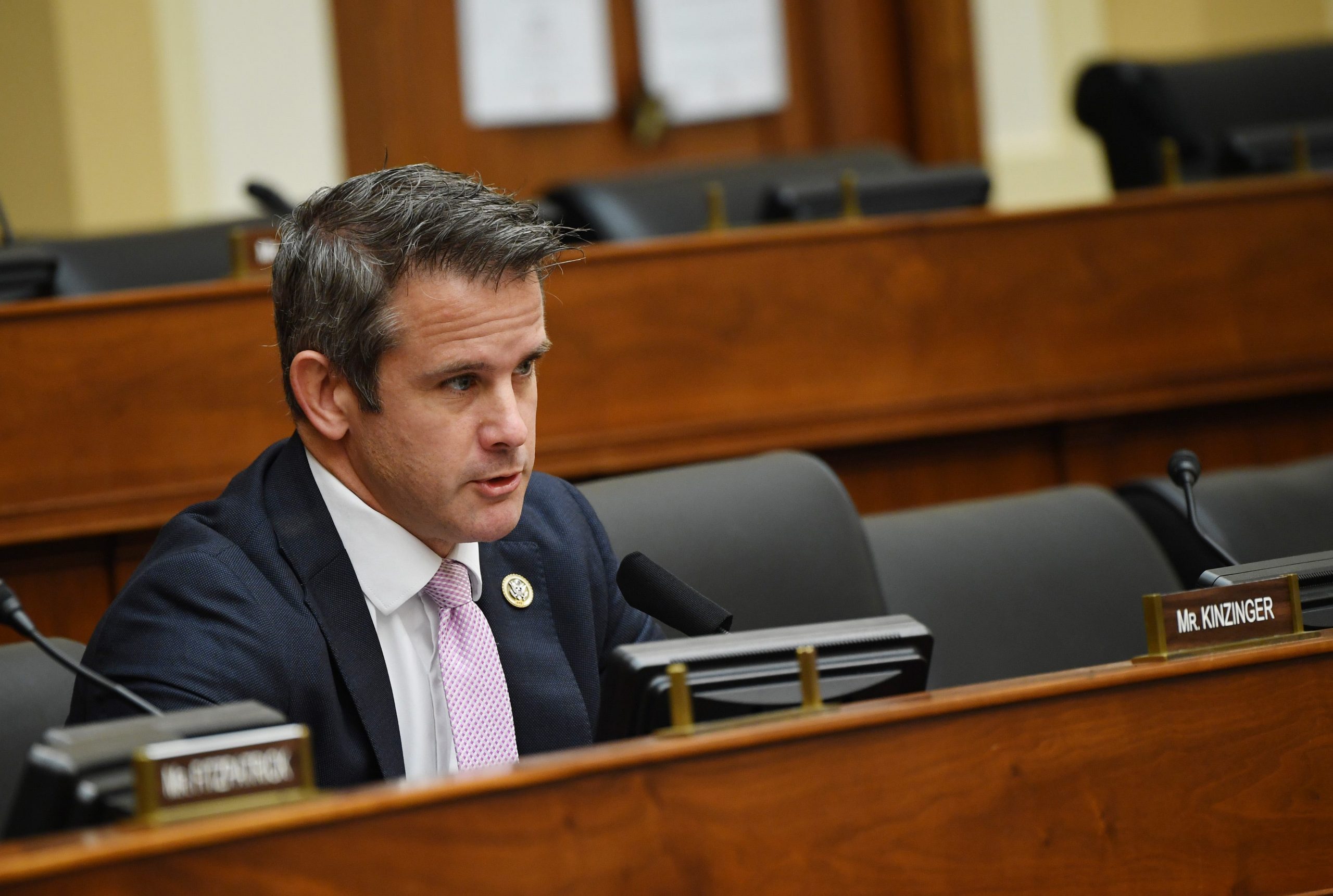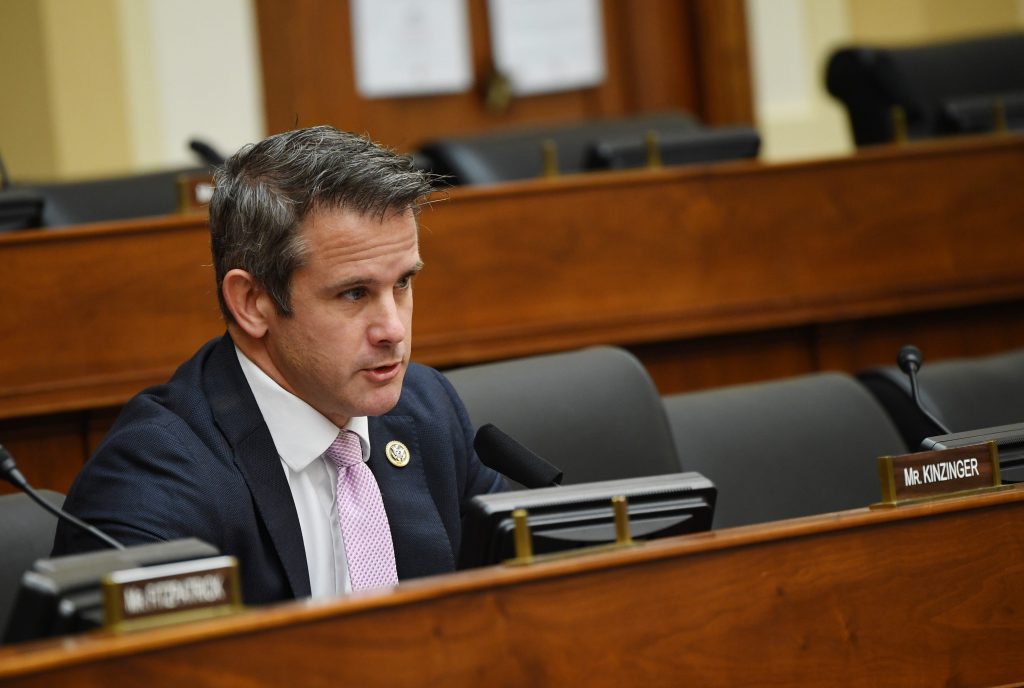
KEVIN DIETSCH/POOL/AFP via Getty Images
- Kinzinger said that he would now support impeaching former President Trump over his Ukraine conduct.
- "That is a regret I have, that I didn't," the congressman told Rolling Stone in a recent interview.
- The Senate acquitted Trump of abuse of power and obstruction of Congress in his first trial.
Rep. Adam Kinzinger in a recent interview said that if he could go back in time, he would have supported then-President Donald Trump's first impeachment in December 2019, when the House voted to charge the then-president with abuse of power and obstruction of Congress regarding his alleged efforts to solicit Ukraine's interference in the 2020 presidential election.
While speaking with Rolling Stone, the Illinois Republican expressed that Trump had a solid set of advisors when he first came into office in 2017, but as time progressed, those steady hands were replaced by political loyalists.
"At the beginning of the Trump administration, he put really good people around him," he told the magazine. "They gave us a little hope that a lot of it was an act, that these people would keep him on the right path. And then he started to pare them off for loyalty."
The congressman said he thinks that Republicans – including himself – brushed aside warning signs of Trump's behavior toward democratic institutions during his administration. And he now says that he would have voted to impeach Trump over the Ukraine scandal, a reversal of his 2019 decision.
"I think the big thing was, obviously, in the first impeachment with Ukraine – I want to be clear – If I went back in time, I would vote for the first impeachment," he said. "That is a regret I have, that I didn't."
However, Kinzinger then detailed how much of his opposition to the impeachment vote in December 2019 stemmed from what he saw as an overly-expedited process from Democrats, who controlled the House.
"It was at the end of the year, and the Democrats had made the decision they had to rush this through and vote for impeachment," he told the magazine. "We were wanting witnesses. I mean, I actually went into that with an open mind. If they proved [it], I will vote for impeachment."
"When they started rushing it, you can say that gave me an excuse, or it gave me a legitimate reason," he added.
In the Ukraine impeachment proceedings, the House voted 230-197 in favor of the article on abuse of power, which accused Trump of using government to obtain election assistance from Ukraine through investigations to undermine his Democratic political opponents.
The House subsequently voted 229-198 to impeach the then-president for obstruction of Congress.
In both votes, Republicans were united in their opposition to the actions taken against Trump - then-Independent Rep. Justin Amash of Michigan, who left the GOP in the summer of 2019, was the only non-Democratic House member to vote for both charges.
The Republican-controlled Senate eventually acquitted Trump of abuse of power in a 48-52 vote in February 2020, with all 47 Democrats and GOP Sen. Mitt Romney of Utah supporting the charge, while 52 Republicans voted in opposition.
On the obstruction-of-Congress charge, Romney was aligned with the Republican caucus, and the final vote was 47-53.
While Kinzinger is regretful of his vote in Trump's first impeachment proceeding - he was unsparing in his criticism of the former president when it came to the January 6 riot - becoming one of only 10 House Republicans to support his impeachment for "incitement of insurrection."
The Senate eventually acquitted Trump once again in a 57-43 vote - a two-thirds majority, or 67 votes, were needed to convict in the trial.
Kinzinger - who recently announced that he will not run for reelection in 2022 - now sits on the House panel investigating January 6 and has become one of the former president's most ardent critics.
